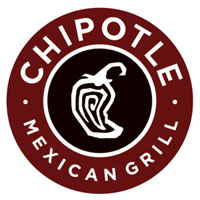 Top Class Action Lawsuits
Top Class Action Lawsuits
A Sticky Situation? (ok— that’s bad—I know). Maybelline is the latest company to face a consumer fraud class action lawsuit. This one alleges the company’s “Super Stay” lipstick and lip gloss don’t last as long as promised. The Maybelline lawsuit accuses L’Oreal SA, the parent company of Maybelline, of falsely advertising the staying power of both products, which sell for about $9 each.
The lawsuit, filed by Carol Leebove, Wanda Santa and Denise Santiago, claims L’Oreal and Maybelline make “misleading, inaccurate and deceptive” advertising claims regarding its “Super Stay 14HR Lipstick” and “Super Stay 10HR Stain Gloss.”
The women claim that while the products are advertised as having “super staying power” that “won’t fade,” that’s not been their experience with the products. According to the lawsuit, “the Super Stay products do not remain on the wearer’s lips for the extended periods as advertised” and “wear off and fade after only a few hours of wear.” One of the Plaintiffs claims the so-called long-lasting lipstick wears off as soon as she eats a meal or has a drink. So, we’ll see if this lawsuit has staying power… as the class has yet to be certified.
Top Settlements
The Proof wasn’t in the Lotion? Merck’s in the news again this week, this time with a settlement of a consumer fraud class action lawsuit over advertising claims made by its Coppertone franchise. The preliminary Coppertone settlement involves Merck ponying up between $3 million and $10 million in damages to the class.
The lawsuit, which was filed in 2003, alleges Merck made false claims about the benefits of its Coppertone sunscreen products. To be fair, Merck inherited the lawsuit in 2009 when it bought Schering-Plough Corp, which owned the popular Coppertone franchise.
As part of the settlement, Merck has agreed that all Coppertone sunscreen products manufactured on or after June 22, 2012 for sale in the United States, its territories and possessions, will not use the terms “sunblock,” “waterproof,” “sweatproof,” “all day” and/or “all day protection” in the label, advertising, marketing or promotion of the products.
When the settlement receives final approval, class members who purchased the Coppertone products at issue will be able to submit a claim worth up to $1.50 for each eligible sunscreen product purchased. Well, that ought to help!
Student Loan Relief? Finally, this week, a class action lawsuit settlement has been agreed between student loan borrowers and a subsidiary of SLM Corp. The lawsuit (Mark A. Arthur, et al. v. Sallie Mae Inc., No. 10-0198, W.D. Wash.), claimed the subsidiary violated the Telephone Consumer Protection Act (TCPA) by making a number of non-emergency autodialed calls and/or automated text messages to the borrowers’ cellular telephones in an attempt to collect on outstanding student loan debt. Nice!
The Sallie Mae settlement terms, which must first receive final approval, include Sallie Mae paying out $24.15 million to the borrowers that received the autodialed calls or automated text messages to their cellular phones by Sallie Mae Inc.
And on that note—I’m going to the bar. Have a great weekend!



